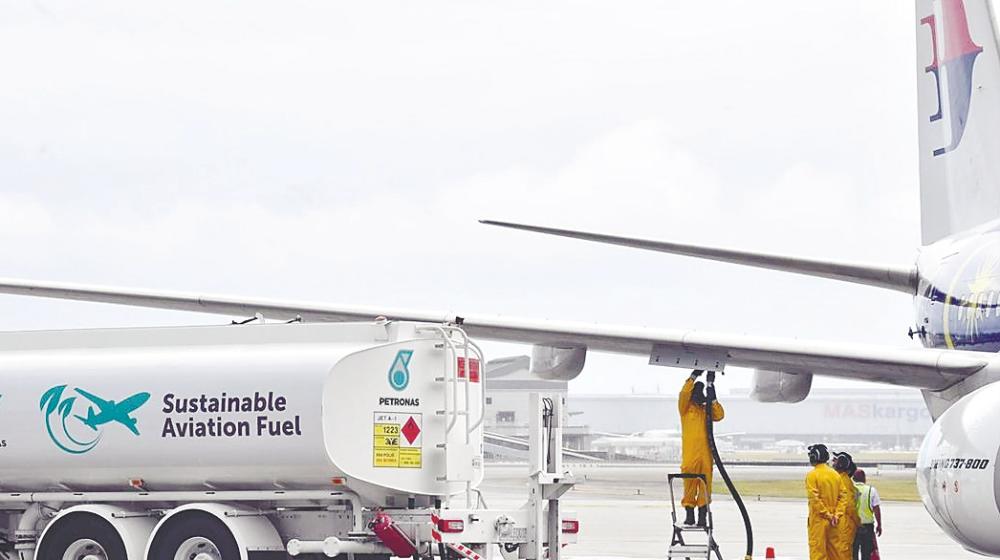PETALING JAYA: Malaysia’s ambitious target to increase the domestic use of sustainable aviation fuel (SAF) could begin by 2030, requiring about 42 million litres annually.
A report by BMI, a Fitch Solutions company, noted that Malaysia’s National Energy Transition Roadmap has set an ambitious target, aiming for a 47% mandate by 2050, starting with an initial 1%.
The report said while no date is set for the 1% mandate, projections suggest the projected SAF implementation would demand 65,000–70,000 tonnes of used cooking oil (UCO), assuming a 90% conversion efficiency.
Malaysia’s reliance on palm oil, with domestic consumption expected to reach 3.8 million tonnes in 2024/25, offers some UCO supply to support initial SAF goals.
However, the BMI report noted that domestic UCO availability is limited as much of its palm oil is exported.
“Without alternative feedstocks, Malaysia’s ability to meet rising global SAF demand could be hindered. Efforts are under way to explore alternatives like bamboo, which align with international standards.”
Further, Malaysia’s SAF strategy prioritises exports, which could slow increases in domestic mandates.
The BMI report said effective UCO collection remains a key challenge despite initiatives such as Petroliam Nasional Bhd’s UCO collection points at petrol stations. It added that the success of these efforts will determine Malaysia’s potential to solidify its position as a significant global SAF exporter.
BMI also noted that an increase in Malaysia’s domestic production of SAF and renewable diesel feedstocks will have significant global implications, especially for countries reliant on imported UCO.
Driven by the renewable fuel industry, Malaysia’s UCO exports have surged, with shipments to the Netherlands increasing by 846%, the United States by 489% and Spain by 661%, reflecting rising international demand.
“As Malaysia ramps up production, the pace of its output growth will directly impact nations dependent on Malaysian UCO,” it said, adding that this development coincides with China’s growing focus on SAF production, adding pressure to global feedstock supplies.
Although global UCO availability appears sufficient, BMI said, efficient collection remains a challenge, and increased competition for UCO is driving up costs.
As UCO prices approach those of virgin oils, countries may prioritise domestic use of virgin oils while exporting UCO-based SAF to markets with stricter regulations.
European Union (EU) member countries such as Finland, Germany, Spain and the Netherlands rely heavily on UCO imports, primarily from Malaysia, Indonesia, and China.
However, soaring demand raises concerns about the mislabelling of virgin oils, such as palm oil, as UCO exploits green fuel incentives. The BMI report noted that the EU has introduced stricter regulations requiring transparency in feedstock reporting.
“Still, the profitability of mislabelling poses risks to supply integrity, emphasising the importance of Malaysia’s production capabilities in meeting global renewable fuel needs,” it said.









